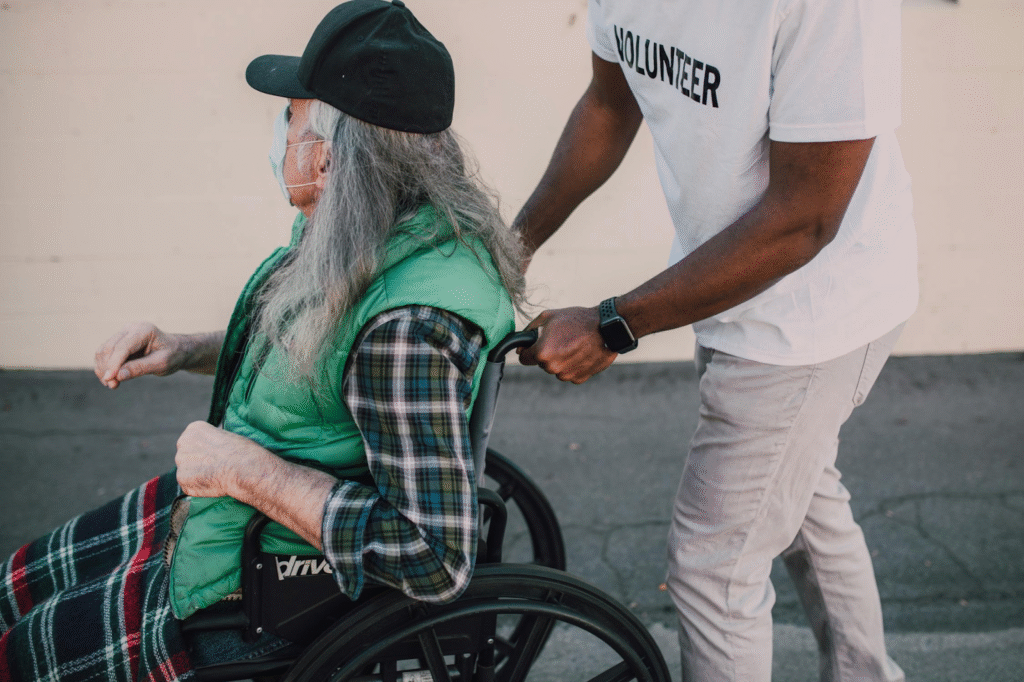Disability support services are often associated with helping individuals carry out daily living activities such as meal preparation, hygiene assistance, or mobility support. These are crucial, but they only scratch the surface of what support providers deliver. Behind the visible routines, there are wide-ranging services that contribute significantly to improving the lives of people with disabilities. These services extend into areas like emotional wellbeing, social participation, and long-term personal development. Looking at these services through a broader lens helps uncover how comprehensive and deeply supportive this work truly is.

Support Teams Who Do More Than Coordinate
Support workers are more than hands-on assistants — they are trusted confidants, reliable planners, and stable points of contact in what can often feel like a system of shifting parts. The strength of a trusted NDIS support team lies not just in their knowledge of policy or schedules but in their dedication to building long-term, respectful relationships. A consistent team becomes familiar with personal preferences, evolving goals, and subtle signs of change in well-being. Their attentiveness allows for better communication with healthcare professionals, more proactive responses to challenges, and a greater sense of stability for the person receiving care.
These teams often act as advocates, helping to navigate the complexities of the NDIS and ensuring participants receive services aligned with their goals. From sourcing assistive technology to liaising with service providers or preparing for plan reviews, their role is comprehensive. Their support gives individuals and their families more time and space to focus on daily life, rather than getting caught in paperwork or chasing updates.
Social Connection and Community Involvement
Loneliness can affect anyone, but for people with disabilities, it can be compounded by inaccessible environments or a lack of appropriate support. Disability support providers recognise that social participation is a fundamental human need, and they often facilitate programs and activities aimed at building meaningful connections.
Whether it’s arranging group outings, supporting attendance at community events, or helping someone volunteer in a field they care about, these providers promote active social lives. This can build confidence, broaden experiences, and provide emotional fulfilment. Social support doesn’t just reduce isolation; it creates opportunities to develop skills and friendships, both of which contribute to long-term mental health and wellbeing.
Planning for Long-Term Independence
Independence doesn’t look the same for everyone, and disability support providers are well-equipped to support individuals in identifying what independence means for them. This might involve setting goals around living arrangements, financial autonomy, or self-directed decision-making. Providers assist in breaking down these ambitions into manageable steps, from locating accessible housing to practising travel routes or developing routines for managing money.
In many cases, achieving a goal may take years of consistent effort, experimentation, and encouragement. Providers offer patience and continuity, two things that make a significant difference. Their ability to track progress, celebrate small wins, and adjust support based on changing needs helps maintain momentum, even during setbacks.
Mental Health and Emotional Wellbeing Support
The connection between physical support and emotional well-being is strong, yet it’s sometimes overlooked in public conversations about disability care. Many support providers are aware of this gap and have developed services that directly or indirectly support emotional health.
This might mean offering a consistent presence during difficult times, such as medical appointments or life transitions. It might include referrals to mental health professionals or simply taking the time to listen and validate someone’s feelings. Support workers often build close, trusting relationships with the people they assist, giving them a unique perspective on changes in mood, stress, or behaviour that may indicate deeper emotional needs.
Emotional well-being is not always treated with the urgency it deserves, but many providers are working to change that. By treating emotional support as a core service — not an afterthought, they contribute to a more complete picture of care.
Support Through Life Transitions
From finishing school to moving into independent living, life transitions come with stress, uncertainty, and the need for adjustment. Disability support providers play an active role in making these moments smoother and more manageable. They don’t just respond to changes; they help prepare for them.
Transition support can involve helping young people with disabilities move from child to adult services, supporting job changes, or preparing for new living arrangements. These changes often require complex coordination between schools, employers, housing services, and healthcare providers — a process that can be daunting for individuals and families without support.
The provider’s role during transitions includes both practical assistance and emotional reassurance. By guiding people through paperwork, preparing for interviews, or helping establish new routines, they reduce the risk of disruptions that could otherwise affect well-being and progress. A thoughtful transition, supported with care, can set the stage for success in a new chapter of life.
Disability support is about much more than helping someone get through the day. It is about standing beside them as they work towards personal goals, develop their strengths, and connect with the world in meaningful ways. By recognising the full scope of their services, we gain a deeper appreciation of the role they play in building inclusive, resilient communities.











